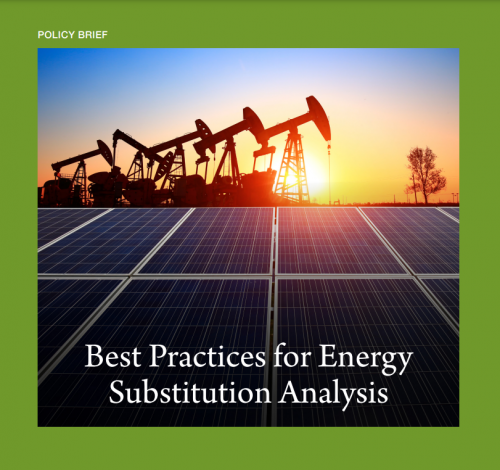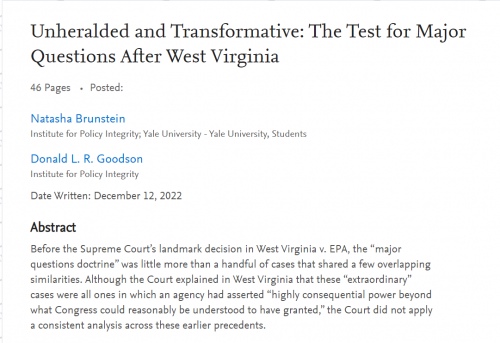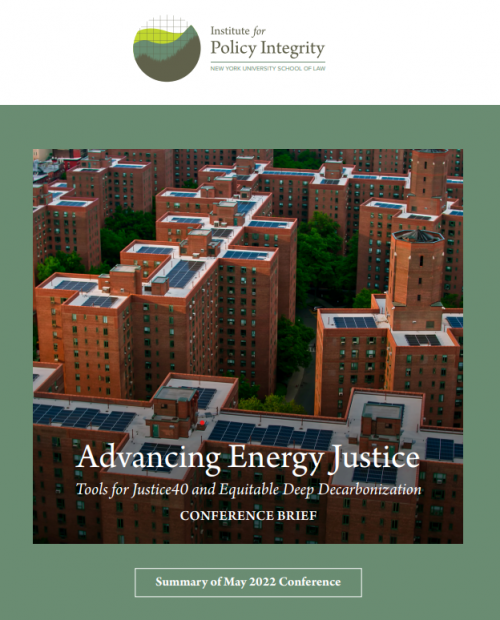-
Shaping Connecticut’s Energy Storage Strategy
Energy storage can play an important role in a transition to clean energy, but only if it’s deployed within an effective policy framework. The Connecticut Public Utility Regulatory Authority (PURA) adopted our recommendations to target its energy storage incentives to areas with the highest differential between the highest and lowest marginal emissions rates so batteries could ultimately lead to reductions in emissions. In addition, PURA directed the Connecticut Green Bank to review our comments when setting the scope of the program's marketing plan.
-
Comments to PUCT on Wholesale Electricity Market Design
The Texas Public Utility Commission (PUCT) requested public input as part of an ongoing effort to ensure the reliability of its wholesale electricity market design following Winter Storm Uri. We submitted comments on how the PUCT can achieve its reliability goals in a manner that ensures just and reasonable rates for consumers. For any new mechanism it may deem necessary, we encouraged the PUCT to choose a design that accords with economic principles. Such a design would compensate both dispatchable and non-dispatchable resources according to their reliability value, include an efficient penalty structure for non-performance of generation units, reduce uncertainty for market participants, and mitigate market power exercise.
-

Best Practices for Energy Substitution Analysis
In recent years, numerous federal agencies have made a controversial claim: that projects locking in fossil fuels over the long term will decrease aggregate greenhouse gas emissions, or that their effects on total emissions will be limited. In many of those cases, however, agencies have reached this counter-intuitive conclusion using a flawed consideration of energy substitution. This report identifies some of the recurring problems with agency analysis of energy substitution and offers best practices to apply moving forward.
-
Amicus Brief in D.C. Circuit Defending BOEM’s Authority to Robustly Consider Climate Impacts in Offshore Leasing
Earlier this year, a group of environmental organizations successfully challenged an offshore oil-and-gas lease sale held by the Bureau Ocean Energy Management on the basis that BOEM inadequately assessed the impacts on climate change from the combustion of the fossil fuels that the lease sale would facilitate. In its appeal to the D.C. Circuit, the American Petroleum Institute countered that any analytical limitations were harmless because the Outer Continental Shelf Lands Act bars BOEM from considering climate-change impacts when administering leasing policy. Our amicus brief rebuts this argument and defends BOEM’s authority to consider downstream climate impacts in its administration of the offshore leasing program. Our brief explains that the consideration of downstream emissions is consistent with OCSLA’s text, legislative history, regulatory history, and caselaw.
-
Still Your Grandfather‘s Boiler: Estimating the Effects of the Clean Air Act‘s Grandfathering Provisions
Working paper
While vintage differentiation is a highly prominent feature of various regulations, it can induce significant biases. We study these biases in the context of New Source Review—a program within the US Clean Air Act imposing costly sulfur dioxide (SO2) abatement requirements on new boilers but not existing ones. In particular, we empirically investigate how the differential treatment of coal boilers shaped the generation landscape by affecting unit utilization, retirement, and emissions. Focusing solely on the additional SO2 emissions, we estimate annual costs of up to $65 billion associated with the vintage differentiation in New Source Review.
-

Unheralded and Transformative: The Test for Major Questions After West Virginia
Published in William and Mary Environmental Law and Policy Review
In West Virginia v. EPA, the Supreme Court expressly relied on the “major questions doctrine” for the first time in a majority opinion to hold that a federal agency lacked authority to issue a regulation. Published in the William and Mary Environmental Law and Policy Review, this paper explores whether West Virginia provides such a framework and concludes that it does. A close look at West Virginia and the alternative frameworks that parties and others urged on the Court in the West Virginia litigation also reveals a great deal about what the major questions doctrine is not.
-

Advancing Energy Justice Conference Brief
Tools for Justice40 and Equitable Deep Decarbonization
This brief summarizes some of the major points of discussion from our May 2022 conference, “Advancing Energy Justice: Tools for Justice40 and Equitable Deep Decarbonization.” The event brought together federal agency staff working to implement Justice40 with researchers to discuss how academic research can be more responsive to communities’ needs. This brief summarizes the varied views expressed by conference participants and is not intended to be a consensus or recommendation document.
-
Policy Brief and Supplemental Comments on the FERC Transmission Planning Rule and the Major Questions Doctrine
Together with Harvard’s Electricity Law Initiative, we prepared a policy brief and supplemental comments defending the Federal Energy Regulatory Commission’s (FERC) proposed rule on transmission planning reform from arguments that the proposal would trigger the major questions doctrine. We review previous transmission planning regulations and orders by FERC to explain that the major questions doctrine does not apply because the proposed rule is neither unheralded nor transformative.
-
Comments to EPA on Greenhouse Gas Reduction Fund
The Environmental Protection Agency recently solicited public input on how to implement the Inflation Reduction Act’s Greenhouse Gas Reduction Fund, which provides $27 billion to support zero-emission technologies and other projects that reduce or avoid greenhouse gas emissions and other forms of air pollution, including in low-income and disadvantaged communities. We recommended that EPA require funding applicants to submit cost-benefit analyses for their proposed projects and, where otherwise consistent with statutory requirements, use the results of such analyses to prioritize funding allocations. We further recommended that such analyses account for significant unquantified effects, include assessments of distributional impacts, and consider the project’s potential to increase (or reduce) resilience to climate change. Finally, we suggested that, in tracking the success of the program, EPA identify climate resilience as a relevant program outcome.
-
Comments to Department of Transportation on Airline Ticket Refunds
DOT recently proposed a rule that would require airlines to issue refunds or non-expiring vouchers to consumers whose flights are significantly delayed or canceled or who decide not to travel for certain health reasons. Policy Integrity submitted comments in support of the proposal, and made recommendations to clarify and strengthen the final rule.









